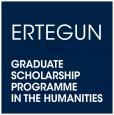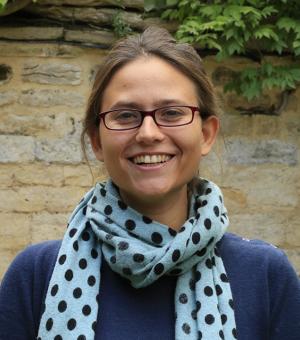Nefeli Pirée Iliou (Greece/Germany)
I was born in Athens to Greco-German parents and as a teenager grew up in New York City, but my home away from home was the Aegean. The call back to Greece and its mythical landscapes came to me in the form of archaeology, which I studied at the University of St Andrews (Ancient History & Archaeology, with a minor in Art History) and later at Oxford (M.St. completed with Distinction). In my undergraduate studies I focused on prehistory, Archaic, Roman and Late Antique Greece. At Oxford my Master’s broadened my horizons to the larger Roman world and introduced me to the exciting field of the ancient economy. We investigated topics from Romano-British glass production to villa economies and the impact of Rome on the culture of peripheral communities like Dura-Europos in Syria, on all of which I produced written work. At the same time, we also considered the larger connective framework that tied these disparate places together.
During my Master’s I discovered the veritable dearth of research on the Roman agricultural economies of Greek areas. I chose to explore them through a D.Phil. in Classical Archaeology, currently underway also at Oxford, where I am happy to be based at Ertegun House as a Resident Alumna. My thesis is centred on the Roman transformation of the agricultural economies of Epirus in northwest Greece and southwest Albania (ca. 2nd century BCE-5th century CE). It investigates the little-understood roles of different forms of wealthy rural settlement through rescue archaeology and explores how study of agriculture can be used to inform our interpretations of a Greek region’s Roman development. My doctoral project has been made possible by grants from the AHRC, the Sloane Robinson Foundation at Lincoln College, the Eila Campbell Prize of the British Federation of Women Graduates, and a generous private donation, in addition to a Leverhulme Study Abroad Studentship and a Research Training Support Grant from the Oxford Humanities Division that financed extensive fieldwork. I am very grateful to all of these organisations for their support.
Alongside my research I have worked for more than 10 year as a field archaeologist and in the world of cultural heritage, which I am passionate about. I held roles from “shovel bum” to assistant field supervisor, specifically in the excavations of the ancient city of Messene. As part of the Cambridge Keros Project I learned about 3D modelling and later had the opportunity to manage the photogrammetry team. Outside of Greece, I contributed to projects in Turkey and in Italy, namely at Aphrodisias in Caria. I also worked in the Benaki and Cycladic museums in Athens, as a researcher and curatorial assistant, in addition to helping to organise an international conference. At Oxford I have taught undergraduate students as a tutor in courses on Roman archaeology, texts and their contexts, specialising on agriculture, and worked as a teaching assistant on the course “Republic to Empire: Rome, 50 BC to AD 50”.
Ertegun House has pushed me to visualise how study of the ancient world fits in a broader narrative framework, for instance, through its weekly seminars that make its scholars sharply conscious of humanities research that is innovative and starkly different from one’s own. At the same time, stimulating outings to museums and concerts expand our knowledge and understanding of art and culture. Alongside providing this wholesome humanities education, Ertegun is an inspiring and supportive family, making for an exceptionally unique academic home the like of which exists nowhere else in the world. As a present and active Resident Alumna I am happy to be contacted by current or prospective scholars and applicants. Most of all, I am immensely grateful to Mica Ertegun for the extraordinary and many gifts that she has given us.




